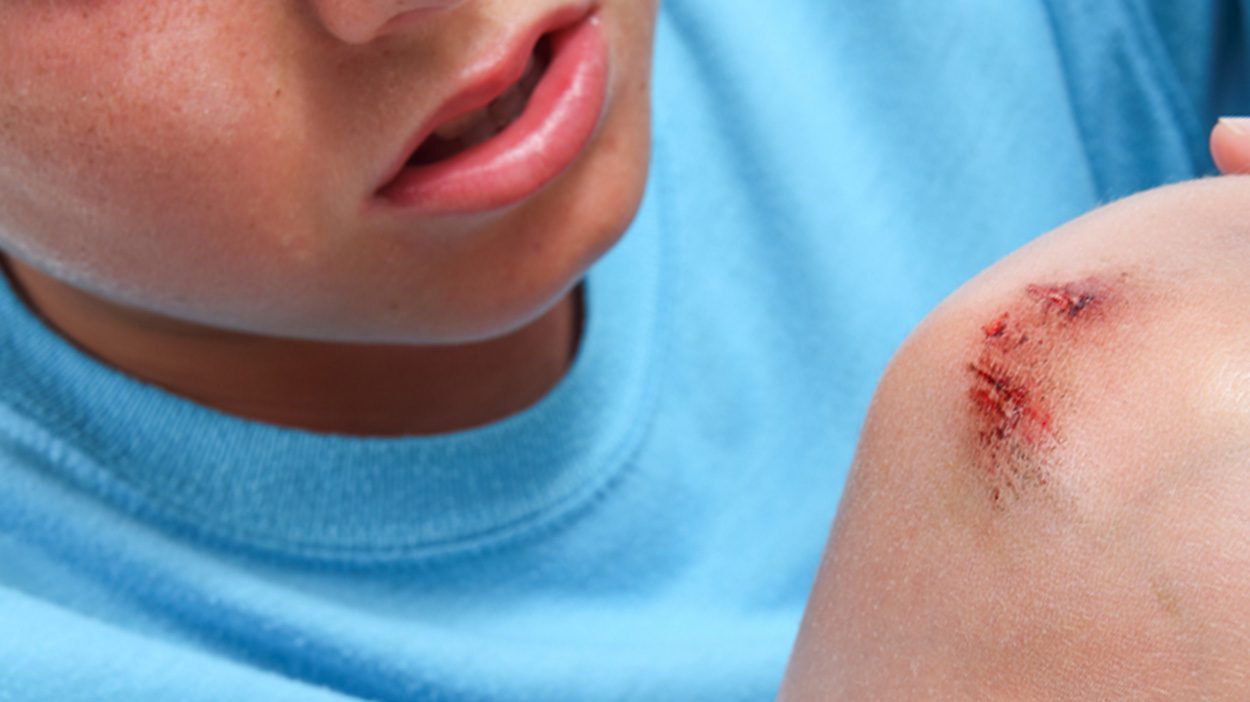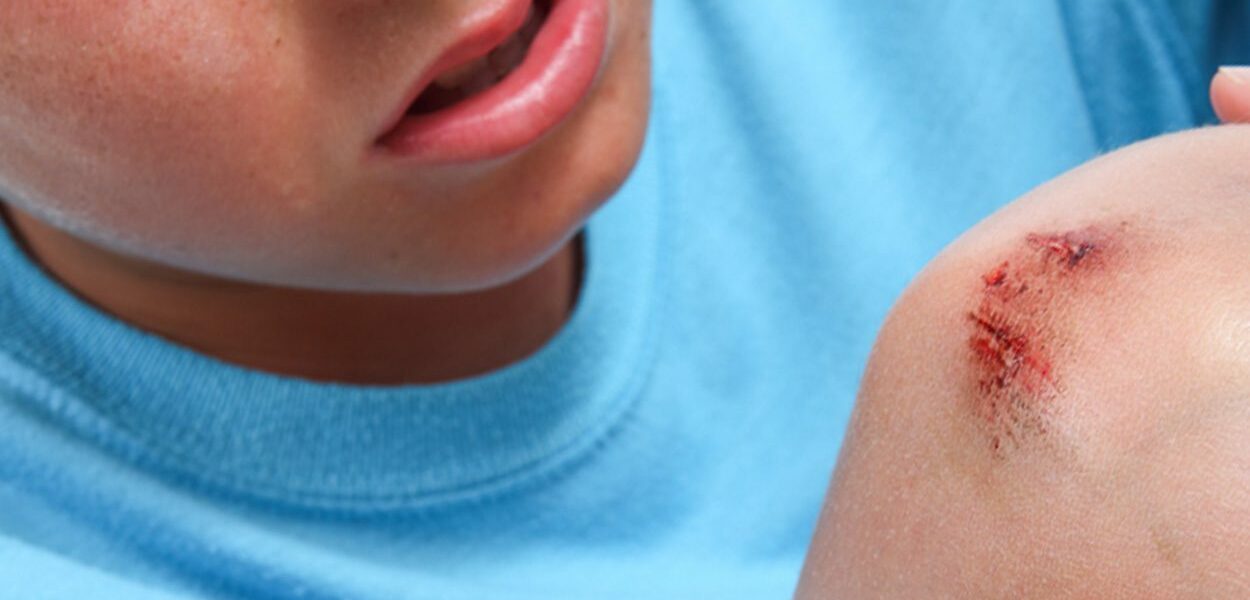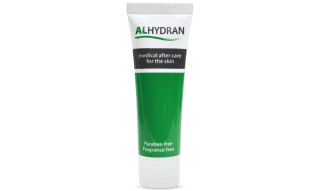A skin abrasion, often called a scrape, is a common minor injury. In most cases, these wounds heal without scarring, especially if they’re small and properly cared for. However, under certain conditions – such as infection, repeated scratching or lack of hydration – an abrasion scar can still form.
We’ll explain what a skin abrasion is, how to care for it effectively, and how to minimise the risk of scarring with Medical-grade treatment.
What is a skin abrasion?
A skin abrasion is a superficial wound where the top layer of the skin (epidermis) is scraped off due to friction. This type of abrasion wound is common on exposed areas such as knees, elbows, hands and face.

Common causes of skin scrapes
- Falling on pavement or gravel
- Cycling or sports accidents
- Carpet burns
- Sliding on rough surfaces
Symptoms of skin abrasions
- Redness and mild bleeding
- Burning or stinging
- Scab formation
- Clear or slightly pink fluid from the wound
- Itching during healing
Can skin abrasions leave a scar?
Usually not. Most skin abrasions heal without leaving a scar. Small scrapes that are cleaned properly and left to heal undisturbed often resolve completely.
However, scarring may occur when:
- The abrasion is large or deep
- The wound becomes infected
- The scab is scratched or picked off
- The skin dries out during healing
- There’s repeated trauma to the area
In such cases, the result may be a scrape scar: often a flat, discoloured or shiny area on the skin.
How to treat a skin abrasion and prevent scarring
Proper care is key to ensure your skin abrasion heals quickly and cleanly.
Step-by-step care:
- Clean the wound
Rinse gently with clean water and mild soap to prevent infection. - Avoid scratching or picking the scab
Let the scab do its job; it protects the skin underneath while it heals. - Apply a hydrating cream after the scab falls off
Once the scab is gone, the new skin is vulnerable. This is when hydration and barrier support are crucial to reduce the risk of an abrasion scar. Apply a medical-grade cream like ALHYDRAN: it hydrates deeply and helps restore the skin barrier.
Don’t forget sun protection after healing
Once your skin abrasion has healed and the scab has disappeared, the new skin is highly sensitive to sunlight. UV exposure can darken the area, increasing the chance of visible or long-lasting scarring.
To protect your healing skin:
- Avoid direct sun exposure during peak hours
- Use a broad-spectrum sunscreen with SPF 30 or higher
- Or choose a scar cream like ALHYDRAN SPF 30, which combines deep hydration with high-level sun protection
By protecting the new skin from UV rays, you minimise the risk of discolouration or visible scrape scars.
When to see a doctor for a skin abrasion
Although most abrasions are minor, consult a healthcare professional if:
- The wound is large, deep or not healing
- There are signs of infection (swelling, pus, fever)
- The wound occurred on the face or from an animal scratch
- Dirt, gravel or other debris remain in the wound
ALHYDRAN: Trusted aftercare for skin abrasions
ALHYDRAN is a proven medical cream developed to support healing of damaged skin — including abrasion wounds — and to prevent scarring.
Why choose ALHYDRAN?
- Hydrates deeply with freshly processed Aloe Vera
- Restores the skin barrier to promote natural healing
- Reduces redness, itching and tightness
- Scientifically proven and widely used in hospitals and burn centres
- Apply two to three times daily once the scab has disappeared.
Summary: Most skin abrasions heal without scarring, but not always
A skin abrasion is often harmless and heals well with simple care. But when complications occur, there is a risk of an abrasion scar. Cleaning the wound, avoiding scab removal, and applying ALHYDRAN can help your skin recover comfortably and reduce the risk of visible scrape scars.
Help your skin heal, prevent scrape scars with ALHYDRAN:
- Medical-grade hydration
- Supports skin barrier recovery
- Scientifically proven


